|
5/30/2021 Editor's Remarks Nicolas Henderson CC
"Building community and nurturing your creativity is how you make a world where you can handle the pain of living, and the losses that must come, without having to take others down with you." --Jenny Bienemann An emotional storm is always brewing in us. I tell you, it is two people meeting. What will come of it, a funeral or a birth? Every place I've ever been has a cold spot in the room. How do I fill it with my warmth? How do I gather in those who, like me, feel so scattered - like out of place artifacts in an emotional museum? The most important things start real small. We all want to be seen, heard, felt, received and believed. But who will truly let us in? Will it be safe to breathe in that room? Can we trust that our story, and their story, will speak into, and not onto, each other's? How do we really listen? How do we open that door? I love questions. They allow me to dream the hard edges of a thing into something softer. Something I can taste: flavor in the soul of the meal. It wasn't always so easy for me to answer a question. Like: "what are you feeling right now?" "I don't know," I'd once say, terrified at the thought. But oh, how the question can make you curious. What am I feeling right now? Time is a dealer of questions. Trauma can strip the answering skin right off the bone. Some questions make you feel like you've been thrown into a battle you are completely unarmored for. Many of us weren't given the containing space, early on, to know what the fuck was going on in our homes. Are the people I depend on trying to kill me? Each other? Is love just a form of psychic murder talking pretty in public? Like Dar Williams sings, it's a war in there: growing up. So how do we come to community given that absolutely everything in us is at stake? It's hard to trust that we will be received given the procedural wounds we carry with us. And yet, we branch out from our wounds, make our own water in these deserts of time. Surely we will always fail each other in some ways. Will our failure be a funeral or a birth? Will we branch out or hunker down? It can take years just to be able to answer a question about the feeling of the moment. It's not always safe to know what you're feeling. When you're young and terrified it's best not to know too much about it. That can build so many rooms of unknowing in us we get lost in the neighborhoods of our own bodies. If asked where I live, how can I possibly give you directions? I own 20,000 houses of procedural abandonment and pain and little emotional murders. If I can't even find my own way home, how could I ever trust that you might find the right house? Is there a truer home than the one we build inside a poem, a story, a piece of our heart's art? I have found in these things a kind of nest built out of the detritus of the soul's long aching highway. Maybe that's all community really is. One big beautiful messy nest that we learn to put together, piece by piece, pain by pain, joy by joy. It's nice to build a nest together rather than alone. And yes, there's an awful risk in that. But there's an even bigger risk in going it alone. In never finding, or trusting, our way back home. When I read the work gathered in these issues I can't help but feel that it is one hell of a big beautiful nest we are building here together. Somehow, I think, we're trying, together, to find a way to answer those questions that built their homes inside of a terrible inner silence. We're learning here how to speak to it. How to say its name. What is its name? Once, it was pain. And only ever. But I think we're digging for water here, too. We're looking for that warm part of the room. There's nothing greater than feeling like we just might belong somewhere after all. Our stories heard, our poems held, our art truly seen. Or as close as we can come to that. For we are bound to trip up along the way. Funeral or birth? What community is. A question we're still learning the answer to. Let's be born. Branch out. Warm the room. Listen in. Stay a while. May there be here a few of the things you need. We see you, we hear you, we need you. We're really glad you're here. Each of you help to make this a place that feels like home. And for that we thank you. James Diaz Editor-in-chief Anti-Heroin Chic Time takes and time gives. All manner of things. But in the time it takes to get down to the roots of our pain, everything happens. We do not just wait things out. Of course we can and have, many of us, slowed time down through those old detours that nearly took us out of time. It's not about luck: coming out of it. It's about wanting, no, needing to know that our light is worth the fight. Recovery means to recoup what was once ours. It means the light was always there, buried deep down as it was, beneath everything that happened to us. Annie Murphy-Robinson's artwork is a recouping-reworking through and underneath the perils and pitfalls of a time once out of joint. Rejoining-rejoicing, other words that come to mind, while understanding one must pass through all the bad parts of town inside oneself along the way. Everything happens when we become such "constant gardeners," as Annie says, and because "these minds of ours need constant tending," there can be no such thing as unattended time in the end. Unbidden moments, sure, but these too come from being down on our hands and knees in the dirt, turning soil, pulling weeds, mending roots. Gratitude is the practice, resentment: the storm warning. And forgiveness, like Cheryl Strayed says, well, it doesn't sit there like a pretty boy in a bar, it's carrying the fat man up the hill, it's hard work. Forgiving ourselves. Falling into, rather than chasing some kind of grace. It's true: we grow through what we go through. We spoke with Annie recently about her art practice and her recovery journey, and the insights she offers here are one's that many of us in recovery, or in any kind of pain, could use reminding of. That the darkness isn't romantic and the light isn't easy. But if we dig: we receive, and all manner of things inside of us find their way home again. *** James Diaz: Could you talk to us a bit about the journey you've been on. Joyce Carol Oates calls it: Where I'm going and where I've been. In telling how and why we arrived here, often so impossibly and against great odds, the opening pages of that story touches the lives of those of us who have been there too before. So, Annie, where are you going, where have you been? Annie Murphy-Robinson: Where I’m going is more difficult to answer than where I have been. My art is definitely influenced by both of those spaces- I continue to rewrite the trauma of the past and reclaim my identity in the process of drawing, giving meaning to it. I am empowered through quantifying my experiences- ie) giving meaning to traumatic experiences which in turn, takes me as a victim out of the story. When I feel victimized, there is lingering "justified" anger which for me leads to resentment- and resentment is the #1 offender for this alcoholic. Where I am going is more of a wish, a space in which artistic exploration can occur- the masterpiece can be created. My tastes, my own stories and my outside influences also come into play in the "where am I going" realm of my art. JD: You've said that art has helped you "to give meaning to the struggle," which I think many of us can relate to. And not just as artists, but also as those of us who find meaning in the work of others that helps give form and voice to our own struggles. Could you talk some about the ways in which art has helped you flesh out the meaning from beneath all the years of struggle and dark, and how it has also helped you reach for that "light through the cracks," as Leonard Cohen so aptly calls it? Have there been artists along the way whose own grappling with struggle inspired you on your own personal journey as an artist? AMR: When I was in my disease, I had become accustomed to the dark, I reveled in it at times, it was so familiar. Many of my traumas were of my own making, perpetuated by my addictions. Some of those traumas were not, they occurred as a child. I learned to work through most with the steps by looking at my part, making amends and most of all forgiveness. What I have found after some time in sobriety is that forgiveness doesn't always make the deeper issues go away. detachment, neglect and a general feelings of not being "enough" seep through and start to emerge (for me) into other issues, for me it was bulimia. Once again I wanted to feel in control and seen as "worthy" (ie skinny, ie beautiful) by my peers, I was not good enough. Once again I was in treatment learning tools to deal with my eating disorder and I starting to notice things. The whys and root problems started to appear in the work- they questioned me as I created the work. I had to answer, it was inescapable. This "questioning seed" got started in graduate school. After learning techniques and starting to master my medium, the why naturally comes up. I kept leaning into imagery that was bitter-sweet, questioning, or in your face controversial which explains my personality. As I made the work my awareness began to grow and the act of making triggered the traumas around them as I searched for the "why". Many artists have tragic histories, I am drawn to the Carrivagios and Frida Kahlos that have come before me, and those are just some of the "well known" artists that have created work from a place of controversy and inner pain, ie truth. The light through the cracks is in the digging, finding the root cause of the trauma and pulling it out- This mind of mine needs to be tended, I have become a "constant gardener". the work, in its completion, still questions me and reminds me to start weeding. JD: As artists, when we find ourselves in the process of creation, (and I think this is as true for writers as for visual artists) oftentimes memories, scars, the blank spaces of traumas too great to process emerge, all that we've kept at safe-distance throughout the years resurfacing to tell a story for the first time. In my experience, just to speak out loud what happened can lift a weight that we've hoisted silently, for years, with us everywhere we went. Has uncovering and giving voice to some of these soul-griefs helped you to travel lighter than before? Art's cathartic and transformative power, how have you felt it show up in your own work and life? AMR: The biggest transformative power that I have discovered through the making and showing of my art is the similarities that people have shared about their own experiences. Much like walking into the "rooms" and feeling a sense of fellowship, the work has brought that same feeling of community. I feel like another aspect of the transformative power is that it asks others to be vulnerable, speak their truth and move through their own experience as well. In my workshops I start with my story- my experience, strength and hope. I know that most people are drawn to my work have that shared experience. regardless of the incident, the root feelings are the same, the pervasive feeling of not being enough. Uncovering the blank spots, forgiving my abusers ( I am one of my abusers) and different approaches to therapy have helped. There is a lightness in me that I am comfortable with today, I have tools that I use to continue to live in that space most of the time. JD: What is your creative process like? How do works first form and take their initial shape? Is there a moment when it dawns on you that a drawing is calling out to be born in a certain way, or is it something that you find happens along the way, arriving as a surprise visitor knocking on the door of the page? AMR: More often than not it, my process begins with a photo shoot- things present themselves there, which include the space I am using (either inside or outside) and the outfits that are used. Lighting is also important -when I look at the images (I take a few hundred to get 10- 15 usable photos) and I move from there. I look for an expression that speaks to me and also a clarity that I can draw from. As I work, I start thinking of names for the piece which come from a narrative that I kind of create in my head. It is always rooted in either the history and plight of the female, mythology or my own past. From the story that starts to come to mind comes the knocking on the door, and that has lead to other imagery, or therapy, or both. JD: What is the first work of art you encountered that took your breath away, that lit a fire in you? AMR: I was obsessed with animals when I was young, so I looked at a lot of wildlife paintings and painters, although I cant recall names. As a young adult I was first moved by the sculptures of Bernini and the paintings of Carravagio, namely Berninis Ecstasy of St Teresa and Apollo and Daphne, and The Calling of St. Matthew by Carravagio. JD: What advice would you offer to those who find themselves yearning to create but who do not perhaps feel they were born an artist, so to speak? Yours is such an important story of persevering and staying with it, of artistic map making in order to save your life, to transform it, and to allow that story, that" vital spark," to touch others in a way that is beyond calculation or words. What are the types of things that have helped you to move past moments where you may have become stuck creatively or felt like cashing in all your chips? Where "the doubting place" became all too real and felt? Where have you found hope to live on days like these? AMR: Art making makes me feel better. There is or was never a question in my mind that made me want to quit making art. There was a point in graduate school where I wanted to quit, I felt less than and I had no idea how to deeply express myself through imagery. Today I know, from experience, a few things- the muse only visits after the work starts and that my visual voice has a right to exist. It doesn't matter who looks at it- it is beyond someone else's interpretation of what it means, why I do it- it is therapeutic and necessary for me to exist in this life, in this skin. When my ego gets in the way, and I start to doubt myself (usually when I compare my work and thus myself to others) and I have tools for that as well. Through the making I peel the onion, always searching, uncovering and acknowledging the feelings that arise. JD: Other than art, what brings you joy? What are the small blessings in a day you look and reach for? The simple, quiet, unbidden and precious arrivals? AMR: Yoga, sweat, sitting in quiet, working my land, chainsawing and manicuring space for my workshops there, music, making music, dancing, outdoor concerts, laughing and crying with my friends and family, being a shoulder for those who need it, discovering new friends, teaching art, talking about quantum physics, and watching a good period drama with my mother. JD: Do you have any upcoming exhibits or new projects you'd like to tell people about? AMR: I'll have a few pieces in the 2021 LA Art Fair in July with Arcadia Contemporary and also have a few pieces in the Art of Paper in New York in late August, also with Arcadia Contemporary. I am just finishing up my website (two years!!!!!!!! argh!) and will have print, originals and videos available for purchase. I plan on working larger and on some work that I have recently just shot which includes landscape and more narrative. 5/26/2021 Featured Poet: Stephanie Williams Dane CC To 15-Year-Old Me at the Tegan & Sara Show Before I Knew I Was Trans There’s a reason this makes sense to you. One day you’ll give that reason a name. You’ll recognize her in the mirror: curly hair down to her hips, smiling like her lip piercing forgot how to apologize. You closet rockstar. You’re almost there. The first time you hear your chosen name on the lips of a best friend you’re going to fall in love with her guitar. Find yourself running red lights in every city, screaming along to the first song that made you feel bigger than your hometown. You’re almost there. A trembling phoenix in some starlit bar. Scarlet dress ablaze under the stage lights. A stick-n-poke spitfire brandishing your busted-up six-string like a can of pepper spray. You’re almost there. Chain smoking in a motel parking lot. Eager for another sunrise to spark your lucky like a lesbian crush whispering pretty girls don’t light their own cigarettes. Aching for another twelve-hour drive to the next show. Belly laughing at every billboard threatening hell to the girls who riot in stiletto heels. Blowing kisses at their reflections disappearing in the rearview. Gaining on the horizon. You’re almost there. Stargazing in a Texas desert. Your glittering heart spilling poem after poem in perfect cursive. Writing love songs to the girl you met back in Portland. Writing love songs to the girl you always knew you were. She’s Running Home with grass-stained cargo shorts and dirt under her nails to tell us all about the ladybugs. Laughing like a grasshopper. Bloody knuckles clutching wildflower bouquets. Strawberry freckles and a rat tail. Missing tooth. Tracking mud. Still daydreaming about tire swings. Pockets full of skipping stones too good to throw away. Boasting with both hands about the biggest crawdad she’s ever seen. A stubborn storyteller smiling through scraped knees, refusing a Band-aid until she’s alone. Cul-de-sac warrior, friend of the honeybees, the daughter we will never have growing up to be just like you. My Hometown Translates What I Couldn’t Tell You When she says I’m sorry I’m late what she means is she takes the long way into town to avoid the roadside grave of a drunk friend, still waiting for him to come home. When she apologizes again I’m sorry if I’m a little off today it’s because she cannot look away from the windchimes left hanging from an oak tree in her mother’s backyard after the bank took everything. Cannot forget how they would shimmer like used needles she found playing barefoot in the creek, how there were so many small things the floodwater forgot that year. When she asks can we go slow she’s trying to warn you: there are cicada nests sleeping inside her, old habits waiting for your April weather. She knows her scars will bloom too quickly beneath your hands. Your Appalachian charm will break her open, like it always does, into a thousand little mistakes she will struggle all season to bring back together. When she says I feel safe with you, she wants you to know she used to float down the shallow Potomac on her back with her eyes closed and ears underwater, pretending she was dead for an entire summer, knowing that at any moment if her body grew tired of this balance she could grasp the riverbottom with the tips of her toes and escape back home. When she finally says yes she means you are the river. 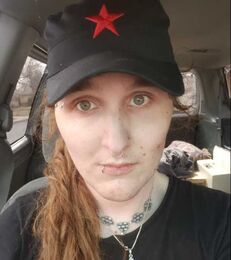 Stephanie Williams (she/they) is a poet and musician based in Denver, CO. Her work has not been previously published. Her poetry explores the joy, grief, and trauma of queer and trans lives. 5/26/2021 Poetry by Victoria Ruiz Jane Rahman CC Interstate Love Song Ode Everytime I hear Interstate Love Song, I am back in the nineties taking laps up and down the three mile drag, sitting shotgun. Everytime I hear this song, I light up a smoke. Daring the prop to outrun the grave. When you died, we became family- more night sky than blood, more lovesong than interstate. To say the gunman wrings himself around the revolver automatically is to say, I have loved more than I have not. Is to ask who we are when not in cars fogged with windows like secrets at the end of a sentence knowing I am here for life. Is to say, the next time, talk to me in hard times. Before there is nothing left to say, which means I am still waiting for a Sunday afternoon. On Returning Hurry heart, sit down beside the steaming teacup before it grows cold in hand. Returning is not failure. I have your eyes and cannot pretend they haven’t seen good in you. Have we estranged for the right reasons? I remember climbing what my young mind remembers were pyramids in South Dakota. These ancient ways in which we grow familiar and distant. Which is to say we are no longer closer than we are mere foothills just waiting for footing. I remember driving south to the end of the papermap. I remember the Sedalia rain falling on my face at nine. The Mexican dances, that you wanted me to find a good first or second generation boy with skin like mine- sparkles in his intent eyes. Who am I to say it wasn’t enough, it might have been your best. Who am I to say you fathered the others better than you fathered me. I might have been the luckiest one. 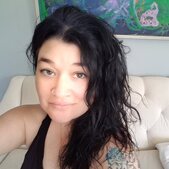 Victoria is a Minneapolis writer who loves time in the kitchen with music on full-tilt while the dog bathes in the sun. 5/26/2021 Poetry by Krys Walls half alive - soo zzzz CC San Diego Has a Meth-Related Death Every 23 Hours The first goodbye came the day I found the meth-pipe on your nightstand. It was a dead-end sign in a short cul-de-sac: too obvious. A dirty piece of glass with a strange weight to it. Time thief, stealing my father. I struck the pipe with a gasping fist. Stray fragments splintered the soles of our feet, cut open by my futile attempt to save you. Destruction was not the help you needed. I am your only daughter, a minor when I first testified on your behalf beneath the ragged tick of a plastic office clock. I could recount your story before I learned how to speak my own. Your visitor amid the syringe-scent of at least a dozen hospitals; I could call your nurses before I could write my name in cursive. Teachers shook their heads as I traded pretty words for your survival. But we had a pact and a secret handshake. We ate takeout burgers and milkshakes off the dashboard of your truck at the duck pond. We snuck onto the drive-in movie lot and projected our home-videos on the big screen. You recorded my birthday parties and the second half of every play. You were never on time. Your love was not perfect. But it was more sure than the blanket of stars above our heads. It still keeps me warm. So let this be your keepsake, an unbreakable heirloom of warmth. Now you are gone, and our house is sold. My grandmother gives me your wristwatch. I spin its empty hands counterclockwise as if I could move time in reverse: you rise up from the grave, put down the pipe, and walk back into a steady job. Your mother recalls a story about her dead son. Once, you were small, and you thought the church bells were the sound of an ice-cream truck. You ran down the aisle in the middle of mass. I choose to stop the watch right there: You, full of hope, as you run towards your future. 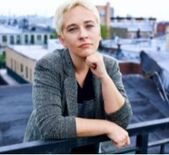 Krys Walls is a queer poet whose work focuses on identity, the climate crisis, addiction, healing, and community. She grew up in San Diego and now lives in Brooklyn. 5/26/2021 Poetry by Kathleen Connolly Dane CC
Slaughter-house. When Grandma passed away three sisters, one golden shepherd and a cooler filled with bologna on rye climbed into the back seat of Dad’s 83 Volkswagen Rabbit. Sarah was only seven. Even then she did not believe in Jesus, or Heaven, or the saying Big Girls Don’t Cry. She does not remember our old dog Rusty who died in the summer of 89 or how mom buried him in the backyard. Mom told us all he was helping tulips grow. Sarah does not want tulips, she wants grandma Ruth. She sobs the first thirty miles on our way to Vermont. Dad hums along to Billy Joel and mom turns up the radio so he can comfortably sing along. Dad has been unemployed five weeks now and when he is home we’re not allowed to play soccer or use the karaoke machine. Mom says there is nothing more valuable a girl can do than learn when it’s best to keep quiet. So we bite our tongues and paint our nails. Each brushstroke an anxious echo. Dad passed Grandma’s exit so he could show us the house he built in Montpelier. He was only twenty-one and had a different wife then. They were married eighteen months before he sold the farm and came home to Long Island. When we pull up to the old farmhouse dad tells us it’s exactly how he left it. It has its original wood, army green window shutters, and the barbed wire chicken coop. He heads towards the barn and we all trail behind. We listen carefully to our footsteps so we don’t crunch and crinkle old leaves too loudly. Ten feet from the coop sits the Slaughterhouse. It's a run down shack with blood stained floors. Jessica, the oldest says it smells like periods. Dad bends down & traces the tin-like metal floor, fingertips collecting dried blood. This is how I remember my father. Pulling mom in by the waste for a kiss while searching for a cleaver. Beaming as he says Look what a man’s two hands can do. Kathleen is a writer and women's rights activist from Long Island. Her first published piece was published by Anti-Heroin Chic on International Women's Day. Since then she has been featured in Mused, Shot Glass Press, and The Long Island Literary Journal. 5/26/2021 Poetry by Tahlia McKinnon Alexandra Frolova CC
Follow towers you’ve spent your wasted youth growing up too fast, keeping company with college kids and middle-aged flakes. you smoke your first blem with them – trade zoots after dark in the local park. you spend the era at the bottom of a shot glass. fuck boys who grow green just to get a free feed, smoke the ‘samplers’ on their sweat-stained sofas. they might touch you in the dark without your permission, but when they taste you, they drink what’s left of your inhibitions. you pretend to be lovers, or friends, but you know they’re all just one-night stands that never seem to end. so you drink each other’s fluids, swallow each other’s pride, and sex is nothing but a cycle now of empty threats and unread texts. the spirits you swill dilute your own, but you blow smoke rings to stop yourself from saying no. besides, they’re the type of men that can’t be told. snort a line of codeine before they leave and never ask to stay. oh, but if only they would wrap their arms around you, the right way. how they’d feel you aching. as if your body were a cage. Tahlia McKinnon is a wild writer, myth-maker and the Founding Editor-In-Chief of Hecate Magazine. Her work has/will be placed in The Daily Drunk Mag, Wrongdoing Magazine, Nymphs, Radical Arts Review and others. Tahlia’s prose often centres on haunted love, the colour and chaos of nature, exultant spirituality and her experience as a trauma survivor. You can find her online @tahliamckinnon and read more of her work via tahliamariamckinnon.co.uk 5/26/2021 Poetry by Lisa Michelle Moore gordonplant CC THE ONLY STATION UP THERE played country music all-day and how Jesus can save your marriage all-night late in my bedroom bush basement I’d twist the plastic Sears clock radio dial searching and receiving and one night I got lucky: a station from Seattle came into me from the edge of the world with my skinny legs and creeping shyness that had never seen the ocean so a mid-winter gift of the weather: the ionosphere escorting music over foothills and wheat fields and highways filled with tanker trucks of bitumen strange sounds like scattering waves of animals running through the interior of the night Thurston Moore sighed through his alien transmission all buzz and skin and New York steam: Don’t you remember you told me you love me, baby? the slow drizzle of car lights across my bedroom walls as slow static turned clear and back and from that night an ache spread behind my ribs and between my hips for places I’ve never seen for sounds and words and for desire itself now gestating in the great lake below my heart the smell of Dad’s Player’s Lights burned down the back stairs and the neighbour boys slammed their car doors and a cool blonde bang fell over the planet of Kim Gordon’s right eye HUNTING PARTY Your hunting buddies took you out one last time. They packed groceries and booze and two shotgun shells filled with your ashes. They walked through muskeg in your honour and stalked moose and they talked and they all agreed: the whole deal is bullshit. You get your head straight and your body disintegrates. You work fifty years and die on a weekend. The black ink of your name will rub off of all the objects and the people that you’ve claimed. The dark hills had turned over in their sleep, their curves like hips rotating, sent the animals back into the deeplands. Shit hunting luck and no meat. But they had whiskey and cigarettes and someone played Sympathy for Devil from the cab of his truck and the fire grew to the height of a man and digested the body of a pine tree into ash. They sat, their foreheads hot against the fire and the music and felt you in a heavy ghost space. Then they loaded you into a rifle and pushed you back into the sky. 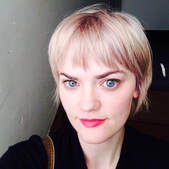 Lisa Michelle Moore is a health care provider and writer living at the longitudinal centre of Canada. Her poetry and prose have appeared in The Cold Mountain Review, The Cabinet of Heed, The Daily Drunk and The Quarantine Review. 5/26/2021 Poetry by Katherine J. Zumpano 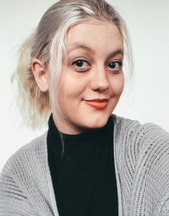 Katherine J. Zumpano is a pisces, poet, and college grad. She is a staff contributor for The Aurora Journal, as well as social media manager and poetry editor for Dollar Store Mag. Her work is forthcoming in Jeopardy Magazine and The Journal of Erato. She lives in Bellingham, WA, with her boyfriend and plants. 5/26/2021 Poetry by Edward L. Canavan half alive - soo zzzz CC might as well the night it laughs in on the joke stars wander thru glint and gleam beneath this blanket of dark roses we make do with what can be found in a look in a poem in a kiss in a bottle of lightning always needing something to do the trick we can no longer do ourselves down in holes of our own making walking into walls, off cliffs tripping into shopping mall ponds oblivious to everything we need and chained to everything we don’t. refuge fierce winds call to arms others eyes see other ways we are not who we think we are to everyone only parts of another whole maybe meaningful maybe hardly remembered significance is relative just be kind in whatever chaos you find yourself in be true of stride and open of heart bring your light wherever you go and the rest will take care of itself. sparrows in the eaves morning dogs dodge the diving bombs impatience cries in the bathroom while she puts on her face cold lasers may dull the pain for now but we’ll really never know much like needles and car rides everyone is alone at the beginning and at the end all we need to remember is that love is the only thing that can make everything in between matter. 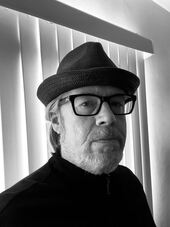 Edward L. Canavan is an American poet whose work has most recently been published in Cholla Needles, Necro, and the City Limits anthology "Poems of Political Protest". His second poetry collection entitled "Protest and Isolation" was recently released by Cyberwit Press. Born and raised in the Bronx, NY, he currently resides in North Hollywood, California, where he practices Buddhism and listens to Thin Lizzy. |
AuthorWrite something about yourself. No need to be fancy, just an overview. Archives
April 2024
Categories |
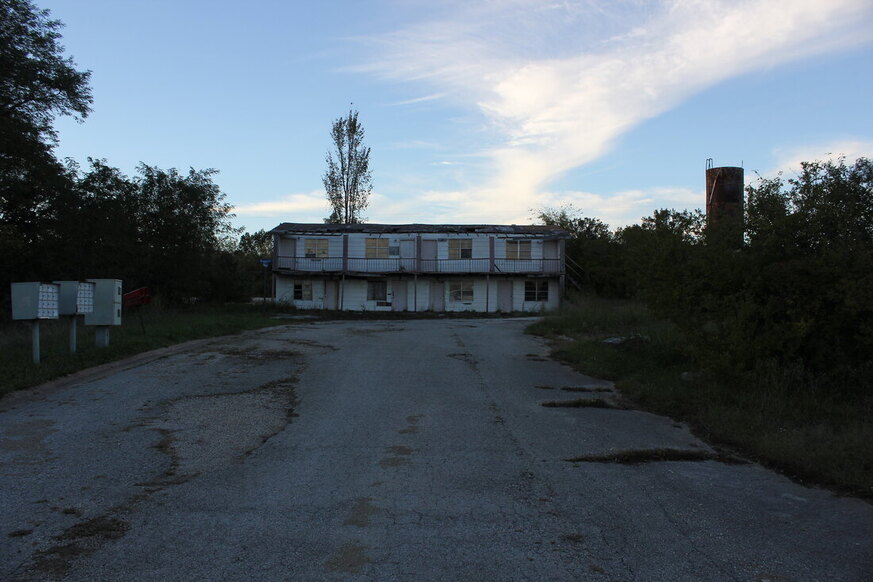
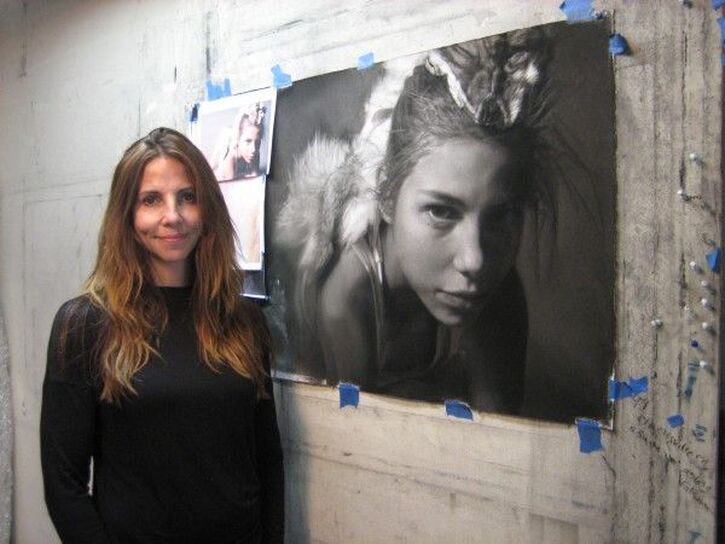
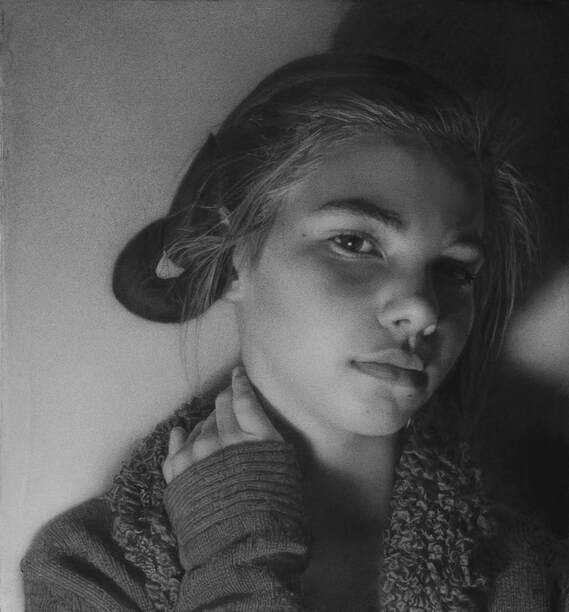
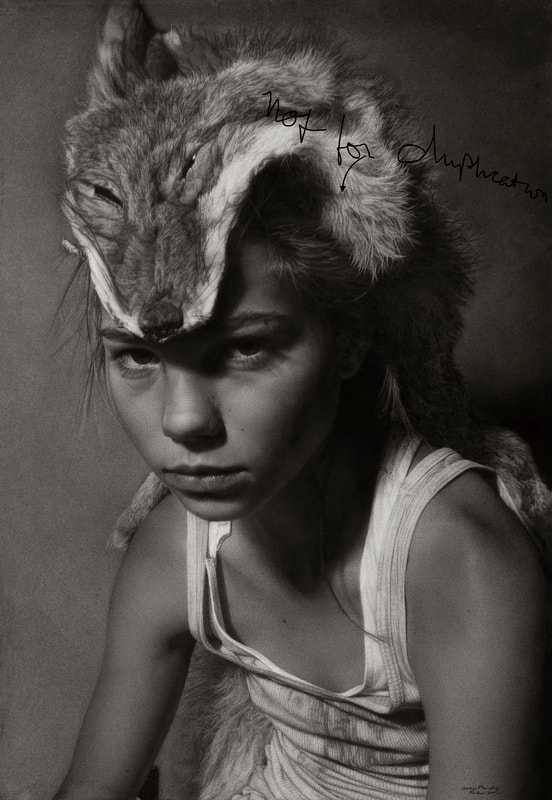
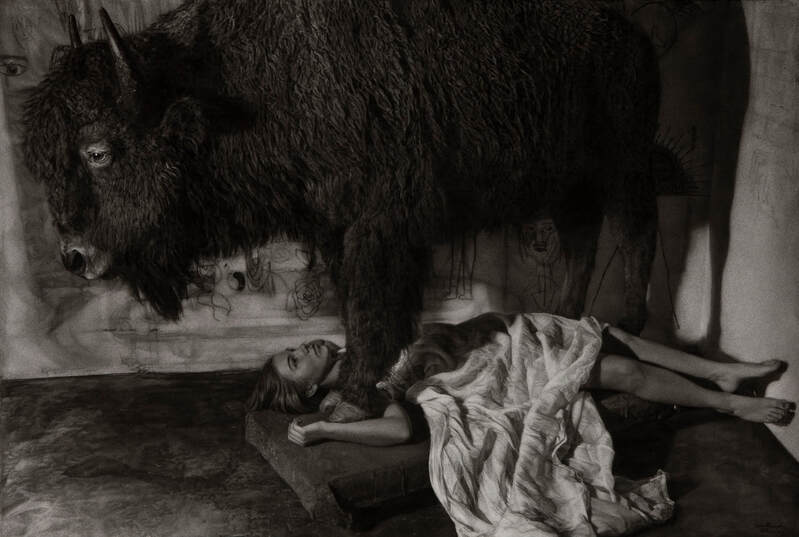
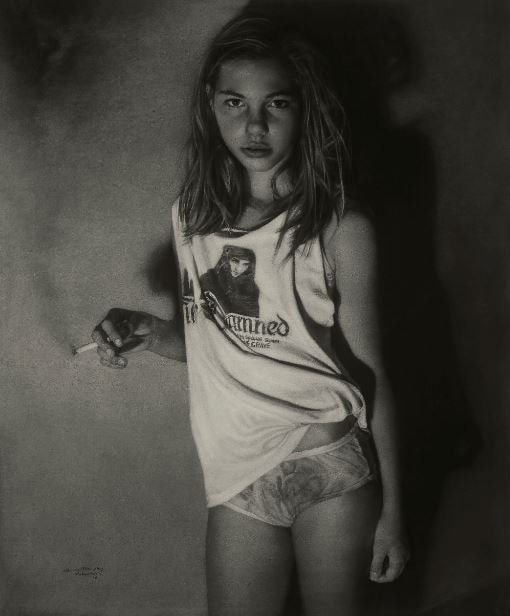
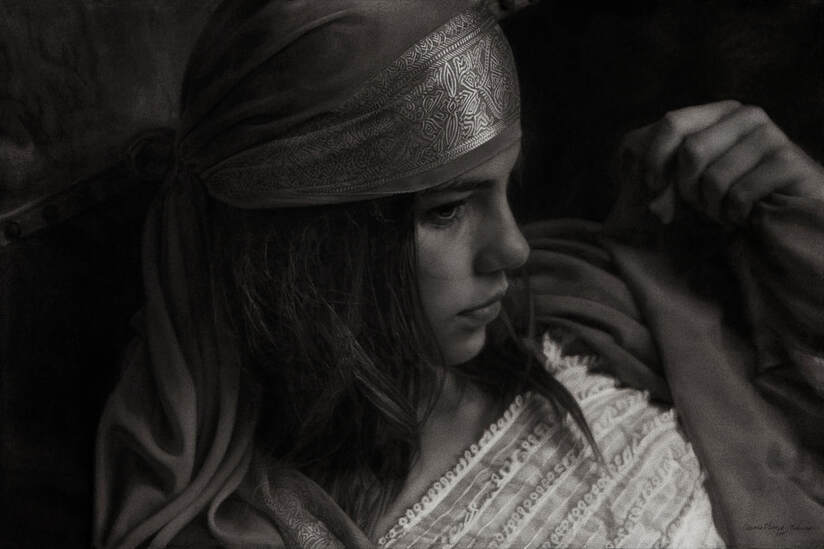
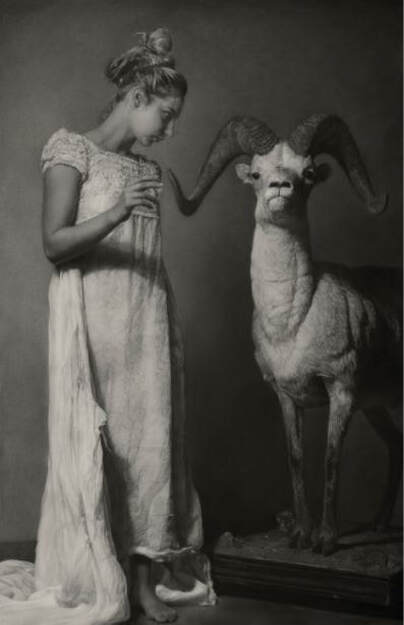
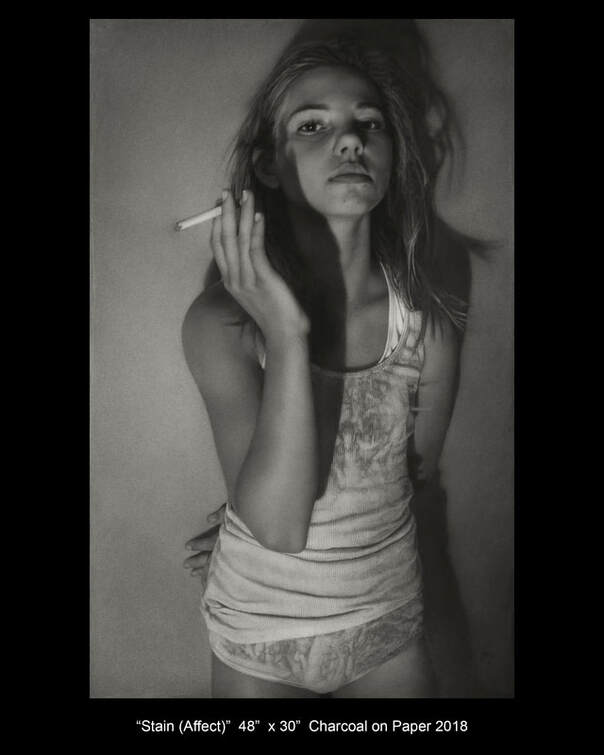
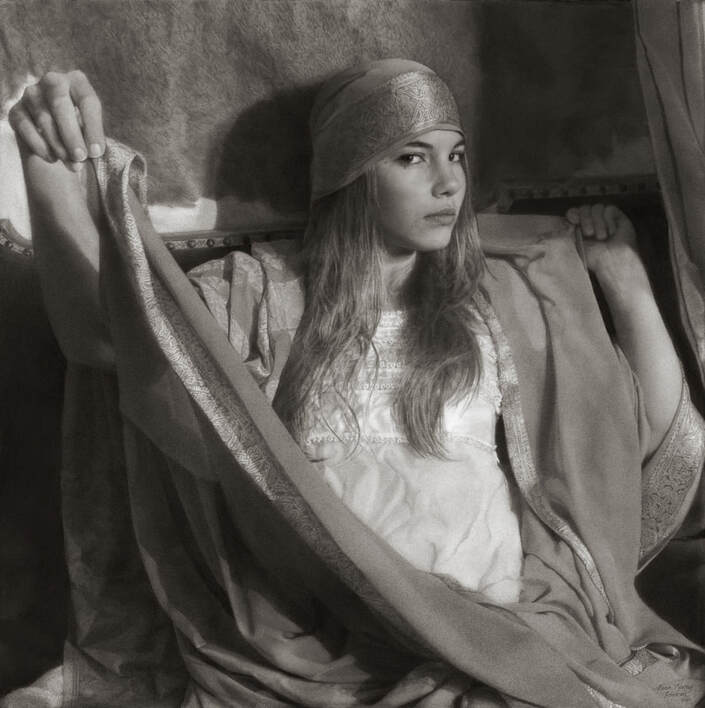
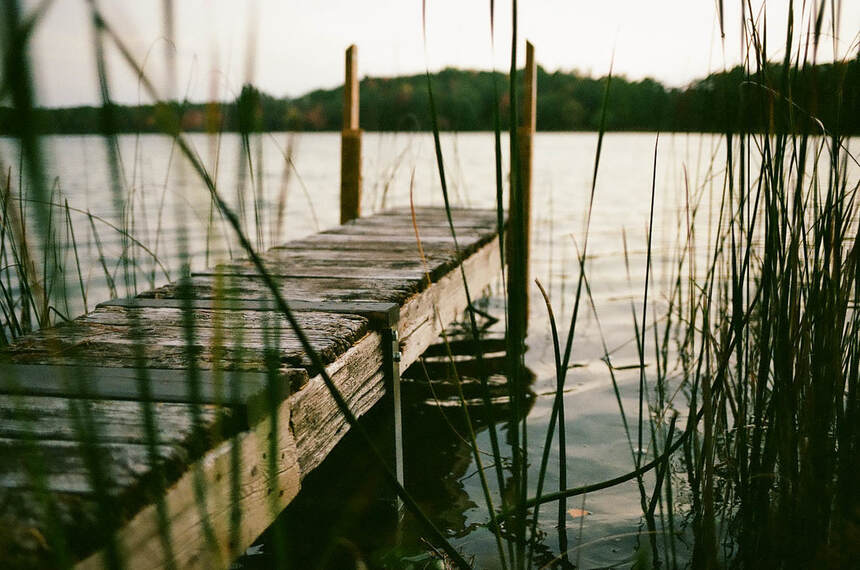
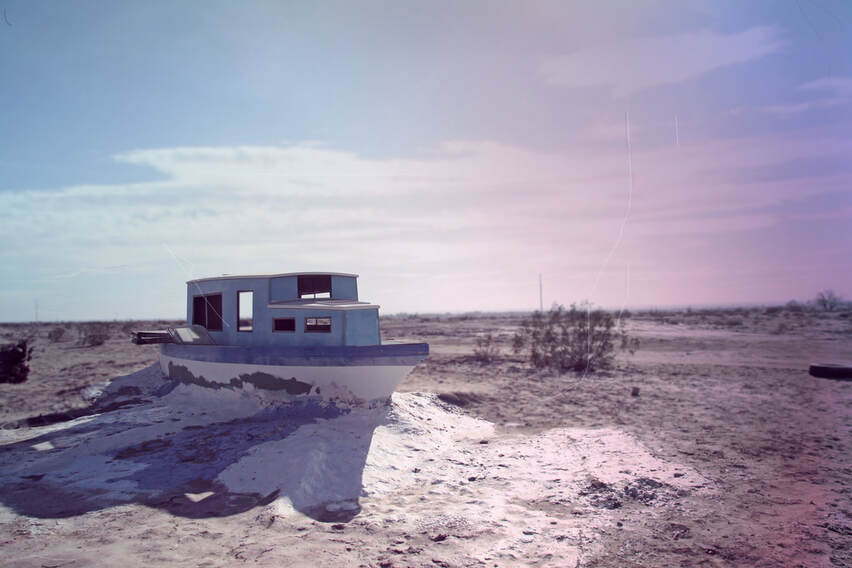
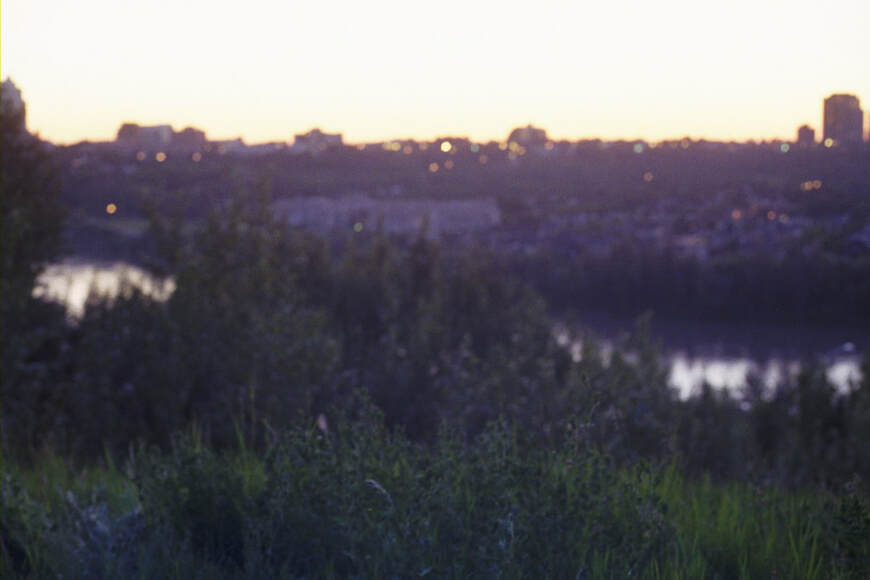
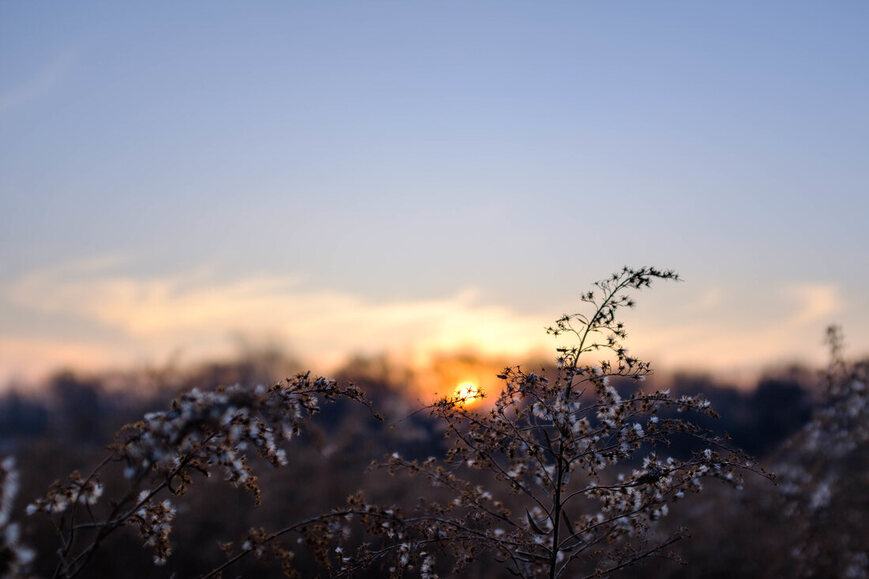
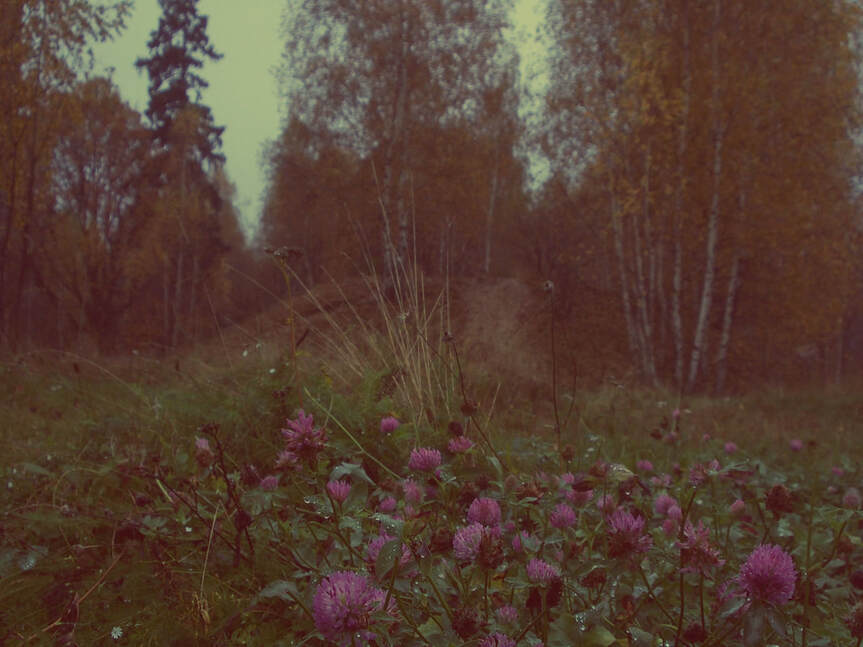
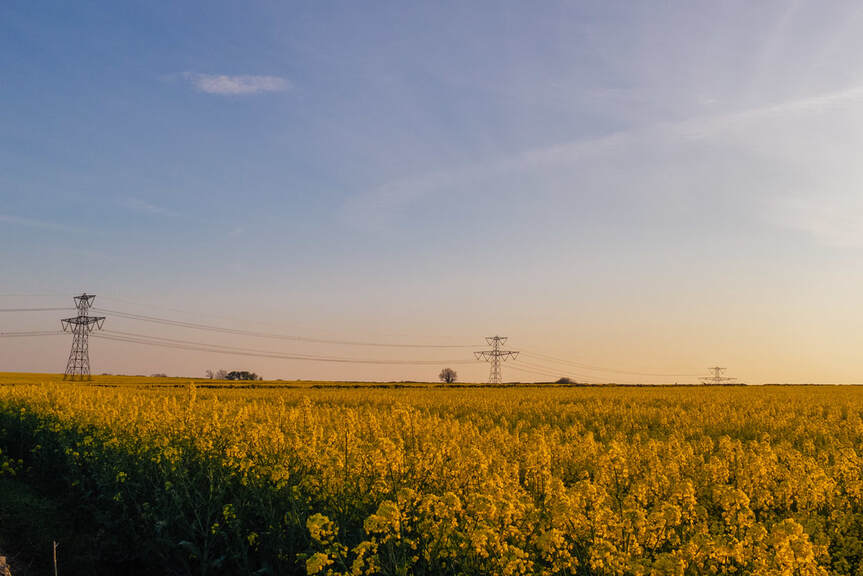
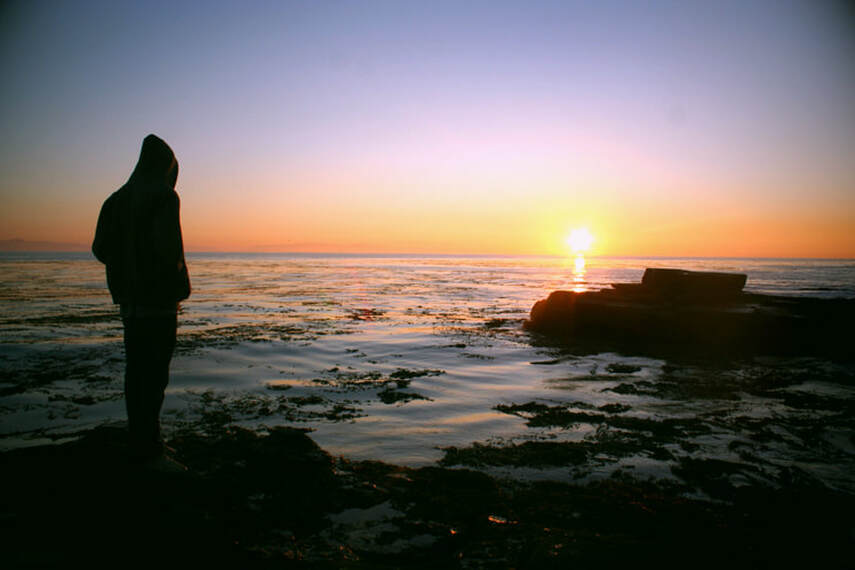
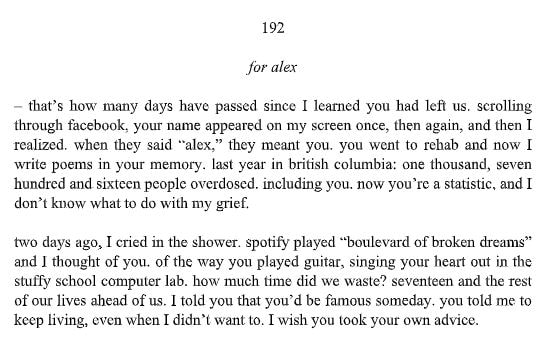
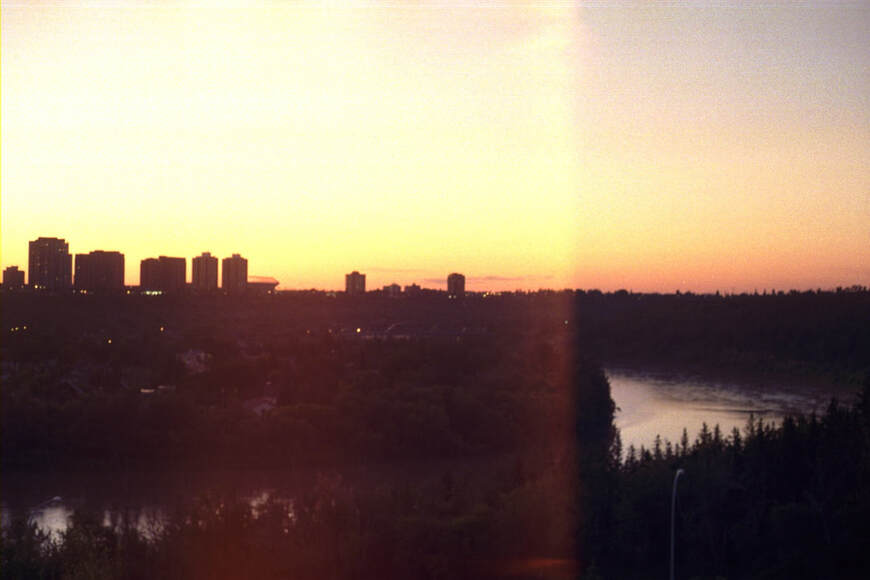
 RSS Feed
RSS Feed
